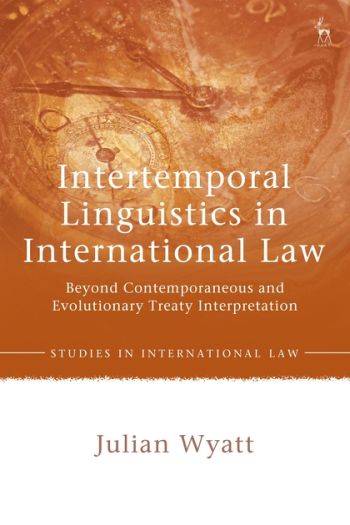
Intertemporal Linguistics in International Law examines and offers an overdue solution to a specific problem central to the resolution of an ever increasing number of international legal disputes: how to interpret a treaty with terms that change in meaning over time.
A wide-ranging review of the relevant international case law and scholarship reveals that no rule, principle or authority of international law – including even the oft-cited evolutionary interpretation doctrine – provides international adjudicators with the firm and practical guidance on this specific question that contemporary international litigants demand.
Using an analytical approach inspired by the comparative method and drawing on specific concepts from external fields including private law, legal theory and, principally, modern-day linguistics, Intertemporal Linguistics in International Law restructures the most relevant international case law around a new conceptual framework that offers fresh insight into the process of treaty interpretation. It demonstrates that by distinguishing between resolving ambiguity and resolving vagueness, and by identifying the temporal sense-intention with which a treaty term is used, international adjudicators can avail themselves of a more predictable and appropriate method for solving this complex and practically important problem of international law.